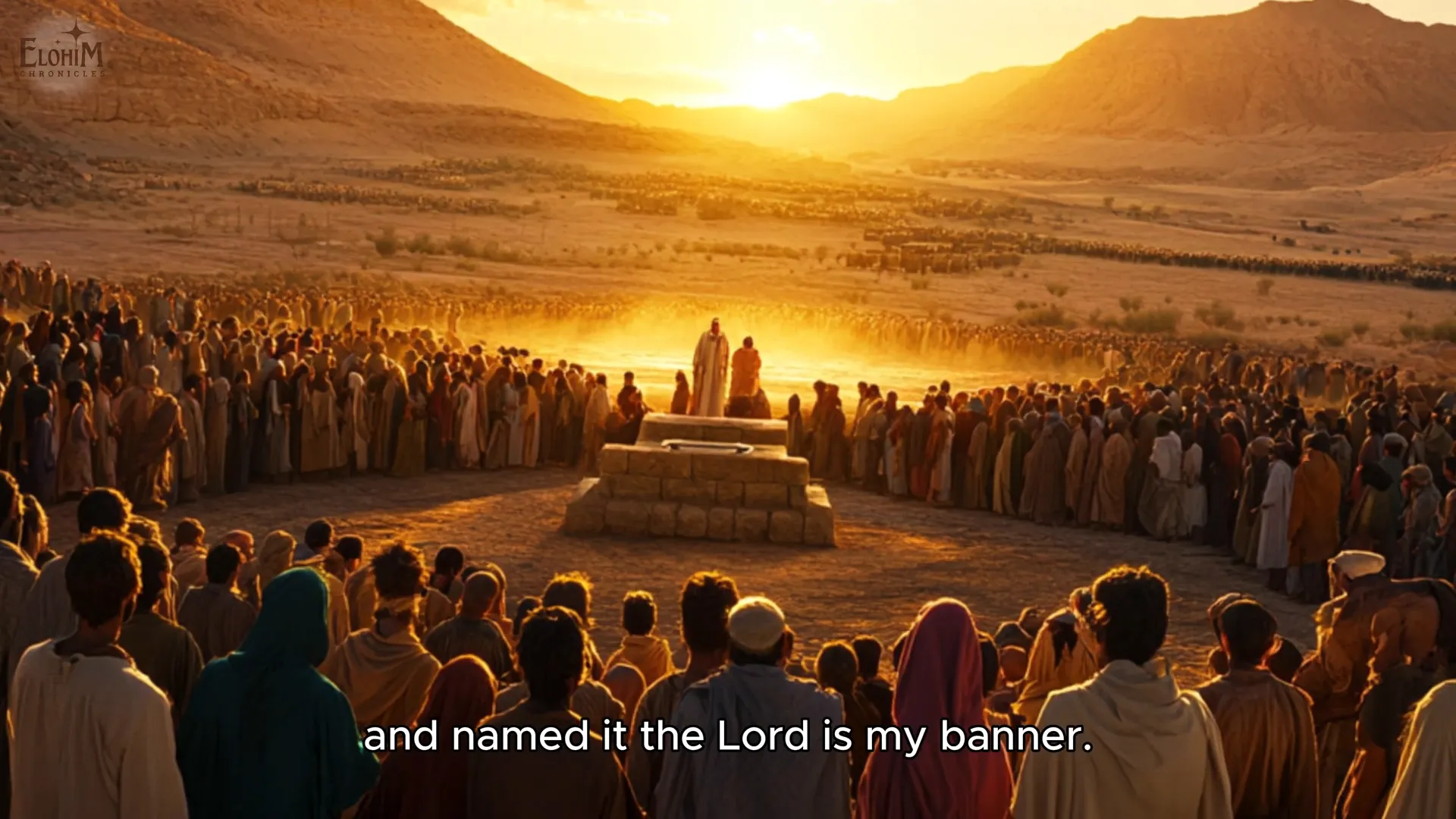Exploring the Most Powerful Names of God: Their Meaning and Significance
In the Bible, the Most Powerful Names of God carry profound meanings that reflect His character and promises. Understanding these names can enrich your spiritual journey and deepen your relationship with God.
The Importance of Names in the Bible
Names in the Bible serve as more than mere identifiers. They encapsulate the essence of a person’s character, their destiny, and the promises associated with them. When God names someone or something, it signifies His purpose and intention. This understanding is crucial as we explore the Most Powerful Names of God.
Throughout scripture, a name often reflects one’s journey and relationship with God. For instance, in biblical narratives, changes in names often align with significant transformations in a person’s life. Recognizing this can deepen our appreciation for the names given to God and their implications for our lives.
Manoah’s Encounter with the Angel
In Judges 13, we find Manoah, who encounters an angel of the Lord. When he asks the angel for his name, the angel responds, “Why do you ask my name? For it is wonderful.” This moment highlights the incomprehensible nature of God’s character. The angel’s name is beyond human understanding, emphasizing the mystery of divine presence.

The Transformation of Abram to Abraham
In Genesis 17:4, God changes Abram’s name to Abraham, marking a pivotal moment in biblical history. Abram, meaning “exalted father,” transforms into Abraham, “father of a multitude.” This change signifies not only a new identity but also God’s promise to make Abraham the father of many nations. Such transformations illustrate the power of God’s names and the new destinies He offers.

Jacob’s Name Change to Israel
Similarly, Jacob’s name change to Israel in Genesis 32:28 is significant. Jacob, meaning “supplanter,” reflects cunning traits. After wrestling with God, his name is changed to Israel, meaning “God prevails.” This shift underscores the importance of divine encounters in shaping our identities and destinies.

God’s Revelation to Moses
God’s self-revelation to Moses in Exodus 3 is monumental. When Moses asks for God’s name, He responds, “I am who I am.” This declaration reveals God’s eternal nature and self-existence. It establishes that He is the ultimate source of being and sustenance for His people, embodying every need they may have.

The Meaning of ‘I Am’
The phrase “I Am” signifies more than existence; it indicates God’s role as the sustainer and provider. In every circumstance, God proclaims, “I am the answer.” Whether you seek peace, hope, or healing, God identifies as the solution. This name is a powerful reminder of His unchanging presence in our lives.

Jesus Identifying with the ‘I Am’
In the New Testament, Jesus identifies Himself with the ‘I Am’ in John 8:58, declaring, “Before Abraham was born, I am.” This statement not only asserts His divinity but also connects Him to the God of the Old Testament. The reaction of those who heard Him underscores the significance of this declaration, affirming His identity as God.

The names of God throughout scripture reveal His character, His promises, and His unwavering presence in our lives. Each name carries a story, a deeper meaning waiting to be explored. As we reflect on these powerful names, we find encouragement, hope, and a profound understanding of who God is and how He interacts with His people.
Hagar and the Name Elroy
One of the earliest revelations of God’s character comes through Hagar, an Egyptian slave woman. After being mistreated by Sarah, the wife of Abraham, Hagar fled into the wilderness, feeling abandoned and alone. In her despair, she encountered an angel of the Lord who assured her of God’s care and promises for her and her unborn son.

In Genesis 16:13, Hagar responds by naming God Elroy, which means “the God who sees me.” This name encapsulates the essence of God’s awareness and understanding of our struggles. No matter how isolated we may feel, God sees us. He knows our pain and our journey.

Elroy is a powerful reminder that we are never truly alone. When we face trials, we can find comfort in knowing that God is aware of our circumstances. He sees our tears, hears our cries, and reaches out with love and compassion.
Abraham and the Name ‘The Lord Will Provide’
Abraham’s journey with God is marked by profound tests of faith. One of the most heart-wrenching moments occurs when God commands Abraham to sacrifice his beloved son, Isaac. With a heavy heart, Abraham obeys, demonstrating his unwavering faith.

As Abraham prepares to carry out God’s command, he is stopped at the last moment by God, who provides a ram caught in a thicket as a substitute. In response to this miraculous provision, Abraham names the place “The Lord Will Provide” (Jehovah Jireh).

This name signifies not just God’s provision in a moment of need, but also His overarching promise to provide for all our needs. In Romans 8:32, we are reminded that if God did not spare His own Son, how will He not also freely give us all things? This assurance extends to all believers, affirming that God is our ultimate provider.
The Victory of Moses and the Name ‘The Lord is My Banner’
The story of Moses and the Israelites’ battle against the Amalekites reveals another powerful name of God. As the battle raged, Moses discovered that the victory depended on his posture of prayer and reliance on God. When he raised his hands in prayer, Israel prevailed; when he lowered them, the enemy gained the upper hand.

With the help of Aaron and Hur, Moses’ hands were held high until sunset, leading to a decisive victory over the Amalekites. In Exodus 17:15-16, Moses built an altar and named it “The Lord is My Banner.” This name signifies God’s leadership and the assurance of victory for those who follow Him.

When we declare that the Lord is our banner, we acknowledge His sovereignty over our battles. In life’s challenges, we can rest in the knowledge that with God leading us, victory is certain, even when the fight seems daunting.
David’s Declaration: ‘The Lord is My Shepherd’
Perhaps one of the most comforting names of God is found in Psalm 23, where David declares, “The Lord is my shepherd.” This imagery conveys a deep sense of care, guidance, and protection. Shepherds know their sheep intimately, leading them to green pastures and still waters.

Even in the darkest valleys, David assures us that God is with us, providing comfort and strength. The shepherd does not abandon his flock but stays close, offering protection from dangers and guidance through life’s uncertainties.

This name emphasizes God’s tender care for each of us. As our shepherd, He leads us with love, ensuring we lack nothing. In moments of fear or uncertainty, we can find peace knowing that the Lord is our shepherd, who walks beside us every step of the way.
Conclusion: The Richness of God’s Names
The names of God are not mere titles; they are expressions of His character and promises. Each name reveals a facet of who He is and how He interacts with us. From Elroy, the God who sees, to Jehovah Jireh, the Lord who provides, and the reassuring shepherd of our souls, these names invite us into deeper relationship and understanding of God’s nature.

As we explore these names, we discover the depth of God’s love and His unwavering commitment to His people. The richness of God’s names can transform our faith, providing hope, comfort, and assurance in every season of life.
FAQs about the Names of God
- What do the names of God represent? The names of God represent His character, attributes, and promises to His people.
- How can understanding God’s names deepen my faith? Understanding God’s names can enhance your relationship with Him, providing insight into His nature and how He interacts with humanity.
- Are there specific names of God for different situations? Yes, different names of God can be called upon in various circumstances, reflecting His provision, protection, and presence.
- Why are names important in the Bible? Names in the Bible often signify identity, purpose, and the relationship between God and His creation, making them vital to understanding biblical narratives.



